INTRODUCTION
Pressure washers are essential for people who love squeaky clean homes, gardens, and vehicles. They exploit the force of high-pressure water to quickly eliminate dirt from various surfaces, making tasks that would have been laborious and time-consuming easier.
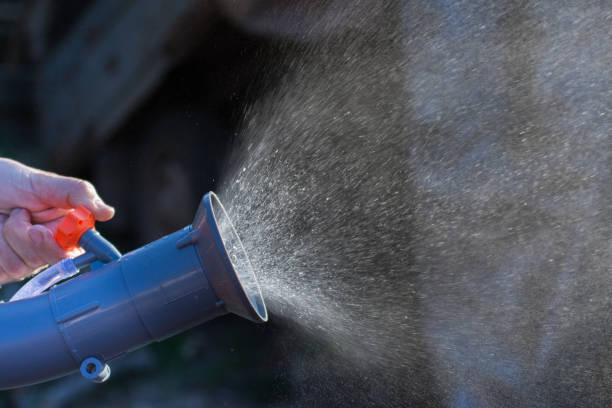
However, can you run hot water through a pressure washer? This in-depth resource will examine the use of hot water when pressure washing and offer crucial pointers for a safe and rewarding experience.
Understanding the Debate: Hot or Cold?
For pressure washing, it is either hot or cold water, with each having its advantages. Cold-water cleaners, which are more popular, can be used for general cleaning purposes.
They pump up water at high speeds, blasting away all dirt and other substances that may be on them. On their part, hot-water washers make use of heated H2O to make cleaning much better, mostly when dealing with stains caused by oils.
Advantages of Hot Water in Pressure Washing
A key advantage of hot water being used in a pressure washer is that it makes the removal of tough materials so easy.
Furthermore, heating aids in quick evaporation, which helps save time. On the other hand, improper use makes them dangerous because they might cause burns or damage to the equipment itself.
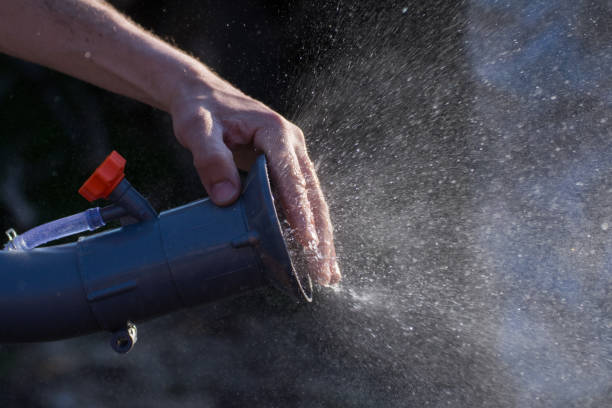
Benefits of Using Hot Water in a Pressure Washer
Enhanced cleaning ability:
If we heat this fluid substance, then we increase its movement, thereby leading to better results while tidying anything around us. In some sectors, such as healthcare facilities and food processing plants, cleanliness is vital, so this aspect comes in handy there too.
Quicker Clean-Ups:
This method combines both speed and intensity, allowing one to get his environment cleansed faster than he could ever think possible.
Enhanced Sanitary Conditions:
When sanitizing surfaces, boiling liquid sterilizes many different types of bacteria, especially those that are present on cold ones.
Less Usage of Chemicals:
More often than not, hot water will handle the task better than chemicals, which means that you can save some money on detergents as well as take care of the environment by using fewer of them.
Improved Degreasing:
Hot-water pressure washers are ideal when it comes to dealing with grease and oils. The warmness dissolves and lifts off the grease, leaving surfaces much cleaner compared to when cold water is used alone.
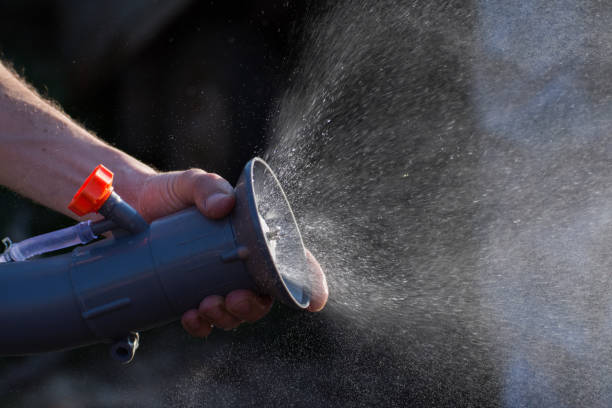
Flexibility:
Hot water pressure washers are multipurpose gadgets that can be used for cleaning vehicles and building exteriors, among other things.
It performs better in cold weather.
Choosing between hot and cold water cleaners becomes quite easier because, during such times, freezing of the fluid may occur, thereby rendering all equipment non-functional.
It Gets Deep:
Pressure plus heat makes certain that an individual would expect a lot from their washing since both will enter any given place deeply, thus ensuring perfect neatness for each item cleaned at a time.
Less drying time:
Drying time could be significantly reduced through the use of hot water while cleaning, therefore making one work fast after that exercise.
Increased Efficiency
A faster process is what is achieved by using hot water pressure washers, resulting in good results as speed combines with efficacy in these devices.
Can You Run a Pressure Washer Without Water?
Disadvantages of Using Hot Water in Pressure Washers
Hot water models come with a few drawbacks, despite all their positive aspects. For instance, they are more costly than their cold-water counterparts. They have high temperatures that affect lifespan, hence the need for extra maintenance.
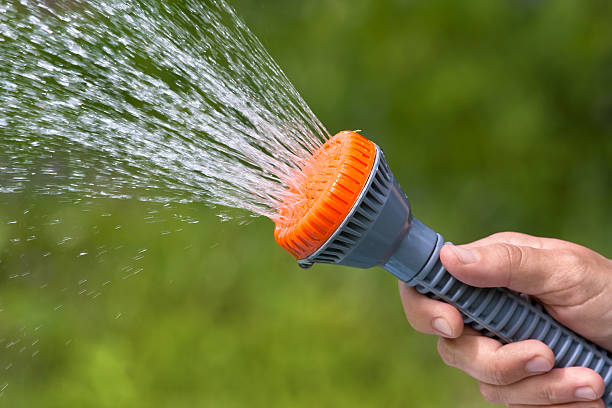
Safety to be Observed When Utilizing Hot Water in a Pressure Washer
When applying hot water to a pressure washer, safety is the most important thing. Here are some important steps to take to remain safe:
Always consult your manual.
Before using hot water in your pressure washer, always make sure you go through the manual provided by the manufacturer. This could provide specific instructions and considerations that you ought to know about.
Set up the temperature:
To begin with, set the water temperature somewhere between 100 and 200 degrees Fahrenheit, which is the normal range for pressure washers used at home.
Use safety gear.
You must wear safety gear when handling this kind of hot liquid, such as gloves, protective eyewear, and clothing that withstands heat.
Connect the hot water source:
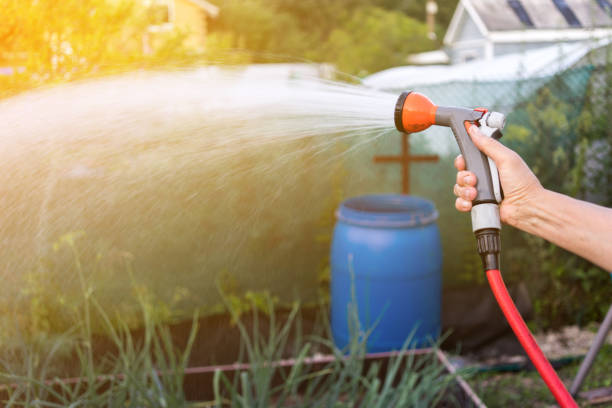
Attach a garden hose to your hot water source, ensuring it can handle extreme temperatures, and connect it to your pressure washer.
Start with cold water.
As a rule of thumb, start with cold water while priming the pump and rinsing out the system before switching over to hot water so as not to cause damage but also to guarantee safety precautions.
Turn on the heater.
After priming the system, switch on the heater until it warms up. How long this procedure will take depends on different units and may last several minutes.
Adjust pressure and flow:
Follow manufacturer guidelines when altering flow or pressure settings for hot-water utilization. Adjustments must be made due to the higher pressures associated with hot waters.
Keep Distance:
While heat can cause burns, high-pressure heated H2O usually leads to more severe injuries. Always stay away from nozzles at all times, as well as avoid pointing them towards yourself or anyone else.
Keep Moving:
Keep the nozzle moving constantly and evenly across the area being cleaned to prevent damage to surfaces.
How to Use Hot Water in a Pressure Washer
Using a hot-water pressure washer is a task that requires thoroughness. Below are some of the major things to remember whenever you decide to use one:
Prepare your pressure washer:
Before utilizing your hot water pressure washer, ensure that it is running perfectly. Look for any leaks or damaged hoses and fittings.
Connect the water supply:

Ensure that the water supply is connected properly to not have any leakage, while there should be an uninterrupted flow of water meant for cleaning purposes in the pressure washer.
Prep Your Hot Water Source:
Ensure your hot water source is ready and at the right temperature so that you can link it up with your cleaner.
Start the pressure washer.
As usual, begin your clean by starting up your washer while considering safety issues like wearing safety gear as well as standing on stable ground.
Alter Temperature Setting:
Monitor the temperature of the fluid throughout the process of cleaning while making sure adjusters are set appropriately slow when required heat flows desired range.
Get Ready for Work:
Remove all obstacles and materials from around the site that may interfere with cleaning activities.
Select the right nozzle:
Choose a nozzle that will control the flow rate and create appropriate pressure. The right nozzle can help control how much liquid passes through it, therefore causing less damage or upheaval than if the wrong one were chosen instead.
Commence cleaning:
Start cleaning slowly but with long, steady strokes. Do not concentrate on one spot too long, as this might cause damage.
Monitor temperature and pressure:
Check these temperature and pressure gauges to ensure they are safe and effective.
Common Scenarios Where Hot Water Can Be a Game Changer
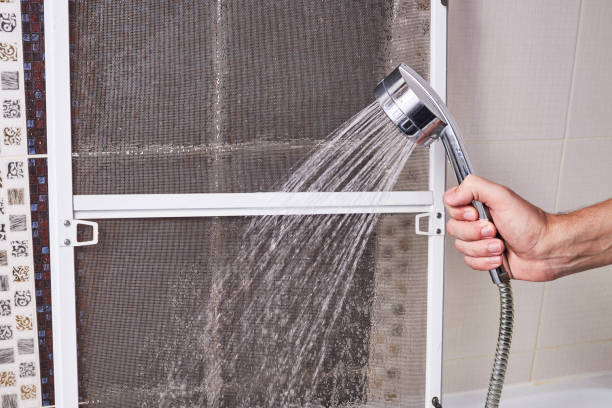
In some cases, it is not a personal or collective choice but an imperative necessity to use hot water in a pressure washer. Here are a few common scenarios that illustrate this point:
Heavy Grease and Oil Removal:
Hot water pressure washers have proved to be an indispensable tool for garages or workshops that deal with heavy grease and oil.
Food Processing Facilities:
Frequently, hot water pressure washers are used because cleaning standards demand the same.
Healthcare Environments:
Hot water pressure washers help to keep critical healthcare surfaces clean and sterile.
Mold and mildew removal:
This becomes relevant when there is a need to remove mold or mildew, as hot water can remove them better, especially in areas prone to dampness.
Vehicle Cleaning:
Hot water pressure washers are ideal for detailing vehicles where grime can be lifted from car exteriors right into engine bays.
Industrial Cleaning:
High cleanliness demands in industries often define them based on their ability to use hot water under high pressure beyond what is required by regulation.
Oil and Gas Industry:
The delicate equipment and facilities present in this industry usually necessitate the powerful washing provided by hot-pressure washing machines using heated water.
Graffiti Removal:
In removing stubborn graffiti from diverse surfaces, warm-water power sprayers are more successful than cold ones.
Cold Weather Cleaning:
During the winter months, without which freezing may result in damage, it’s important to prevent freeze-up, which means you must have access to a commercial-grade stationary break-down-freeze machine that uses heaters along with other components such as low-flow quick-connect hoses that will enable the flow of fluids through even if not under high enough pressures.
Conclusion
Especially for highly difficult tasks that involve grease, oils, or need to be sterilized, the use of hot water in a pressure washer can yield incredible cleaning results.
It is an approach that can move your homemade cleaning project to professional levels when used with care and understanding.
Conversely, the emphasis on safety must not be taken for granted. Always check your equipment capacity, regulate water temperature, select appropriate detergents, and prevent cases of possible burns.
When you include hot water in your power washing routine, it’s no longer just clean; it’s also sterile; it tackles the toughest dirt; and above all, it’s eco-friendly and fast.
Now that you have learned this information, you will be able to understand why hot water is so valuable to use while pressure washing. Yet we are still interested in hearing from you. What about sharing some stories about yourself?
Also, feel free to ask any question as well as inform us on how hot water cleaning has changed the face of your cleaning process.
FAQs
What are the advantages of using hot water?
Washing with warm water involves dissolving stains and reducing the time needed for cleaning, sanitizing, chlorine reduction, and other uses that minimize chemical usage.
Are there specific types of pressure washers made for hot water usage only?
Yes, these are those models that have been designed specifically to use hot water with components that can resist high temperatures.
Can you damage your pressure washer by using a hot liquid?
Hot water may cause some parts to wear out over time. Observe regular maintenance practices as provided by the manufacturer and use the right type of pressure washer depending on the kind of liquid you will be running through it.
How does hot water affect the cleaning power?
The more alkaline detergent is made much more effective by heating while at the same time increasing its solubility and speed of penetration so that oils as well as grease can be easily removed.
What temperature range should I run my hot water through in a power washer?
100–200 degrees Fahrenheit for most residential devices. However, industrial power washers can handle temperatures up to 300 degrees Fahrenheit.
Can I use hot water with all pressure washer detergents?
Not all detergents are compatible with warm washing. Verify that it is safe to heat before spraying this product onto surfaces.
How are you running water through your pressure washer?
By following these suggestions and taking appropriate safety precautions, running hot water through your pressure washer can be an extremely effective way to deal with tough dirt and grime.
Want more tips on pressure washing? Visit our website. A clean home is a happy home, but never forget safety first.
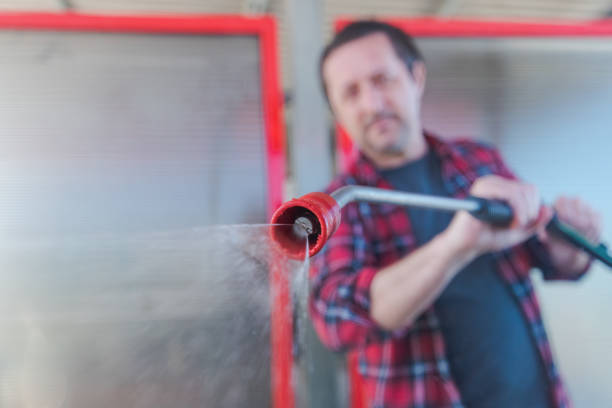
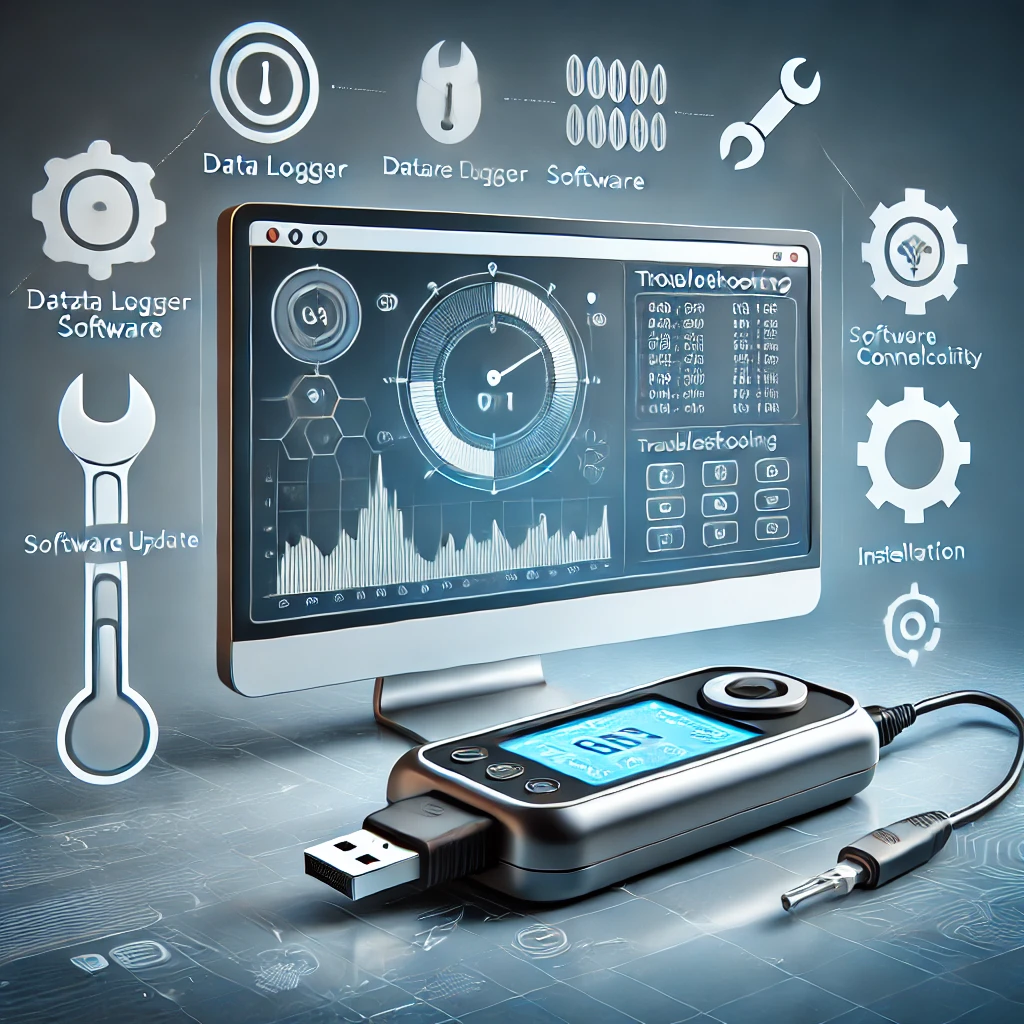







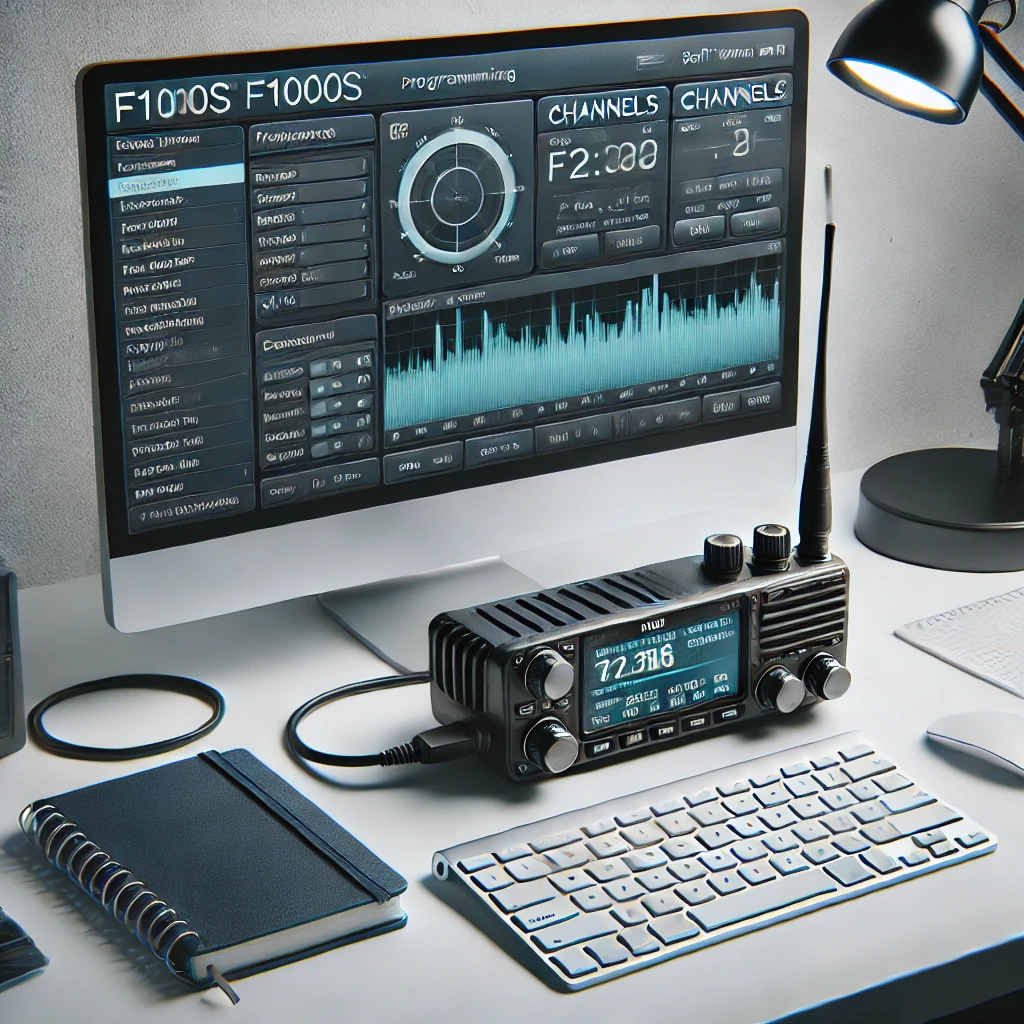

Leave a Reply